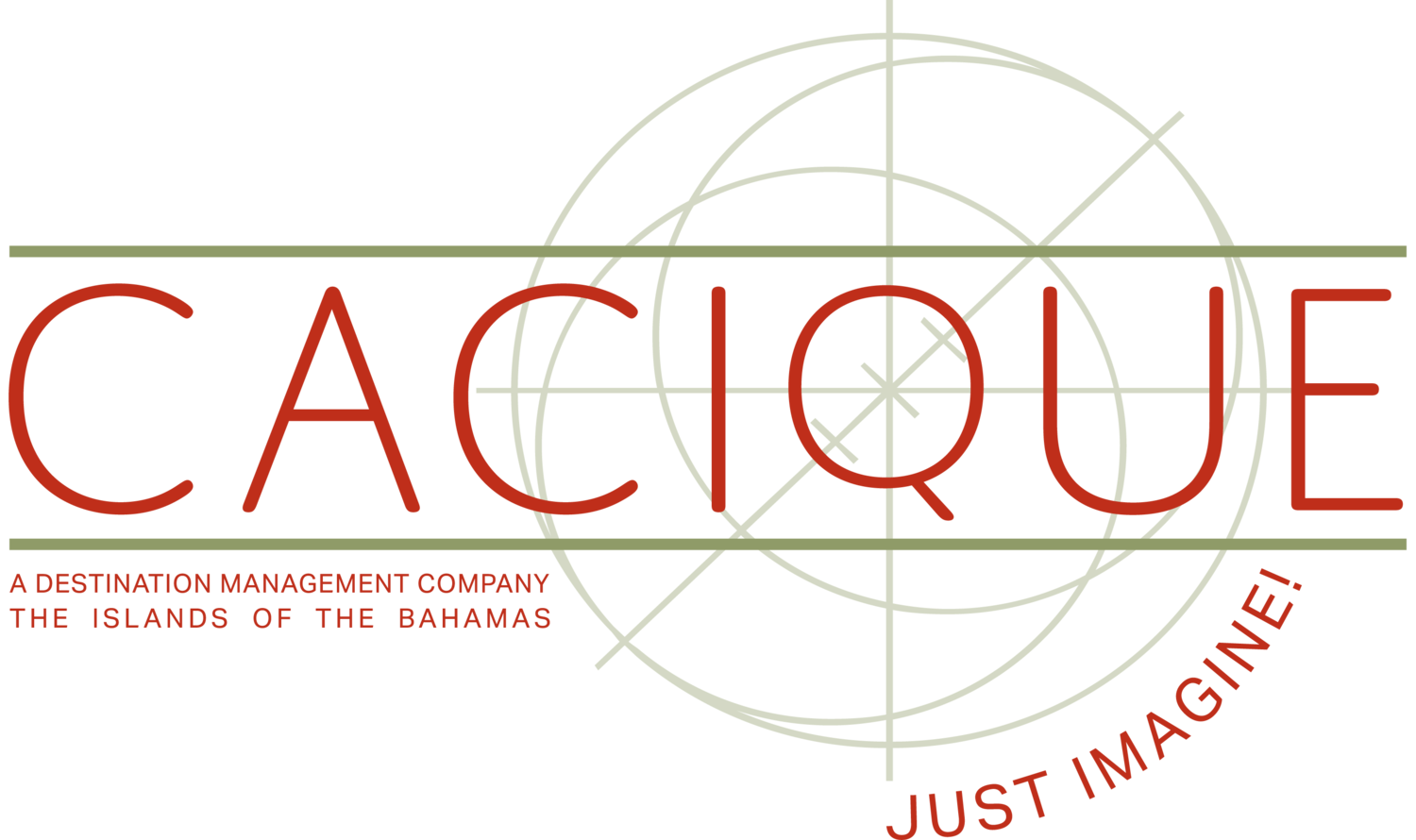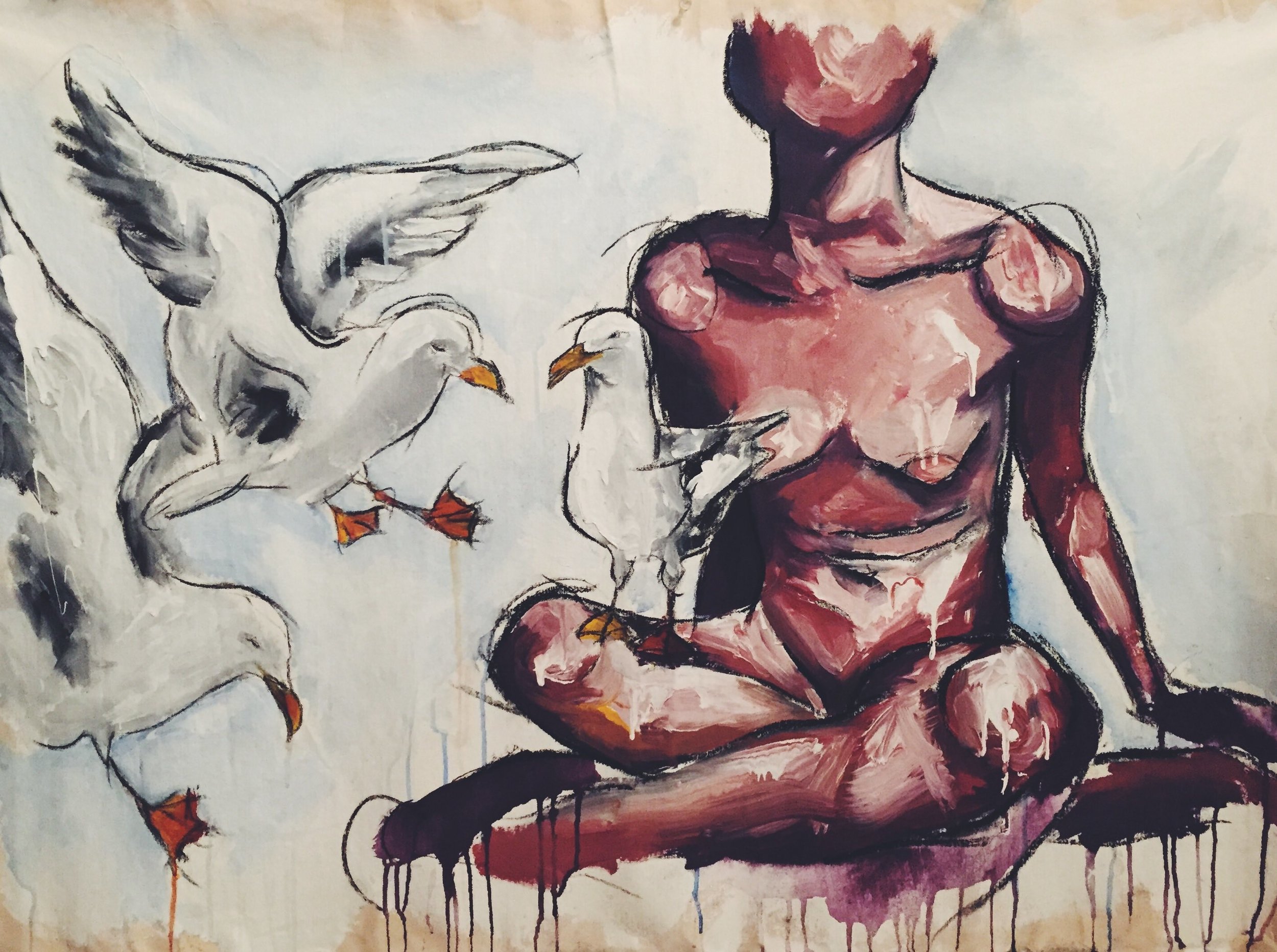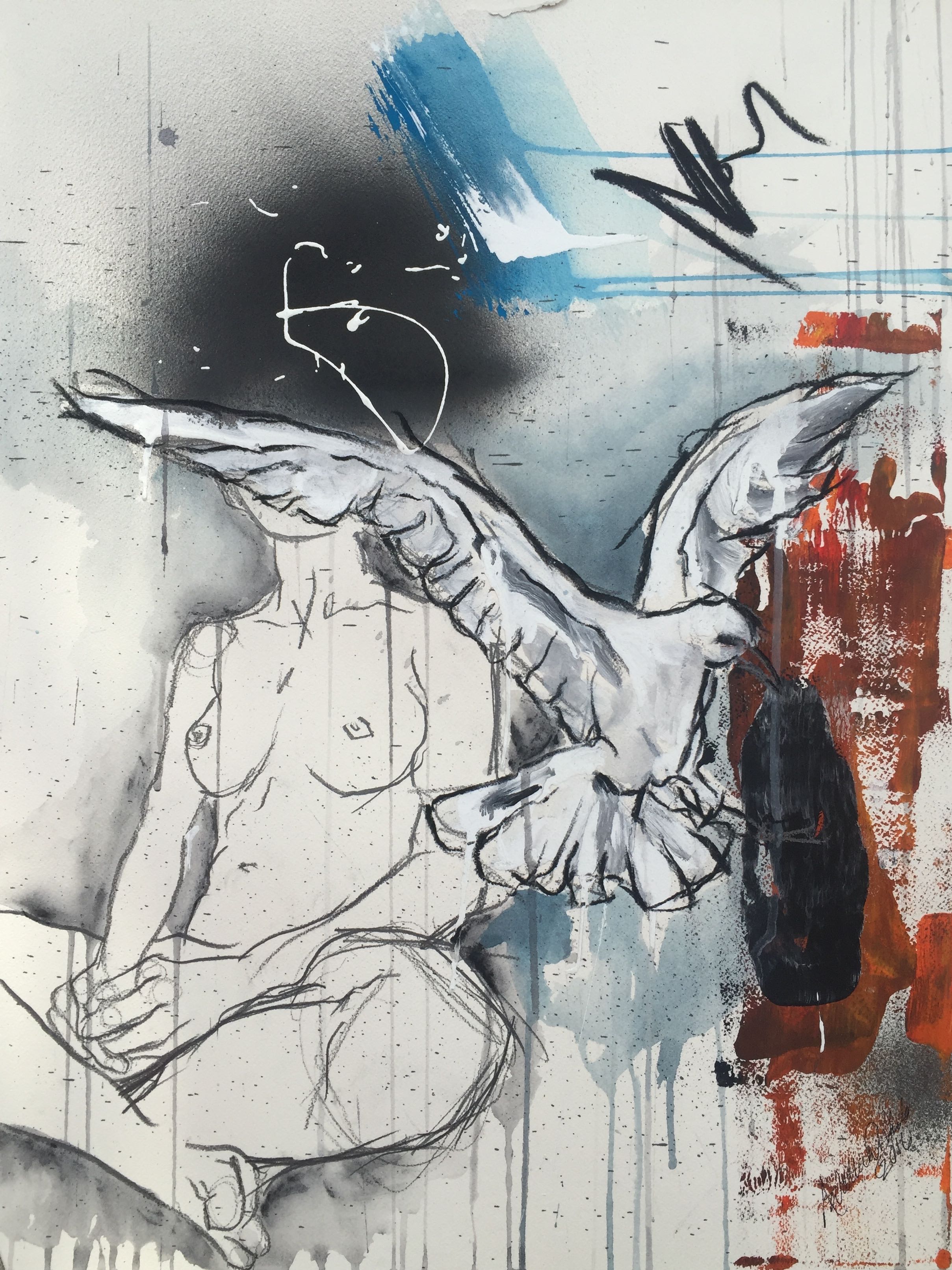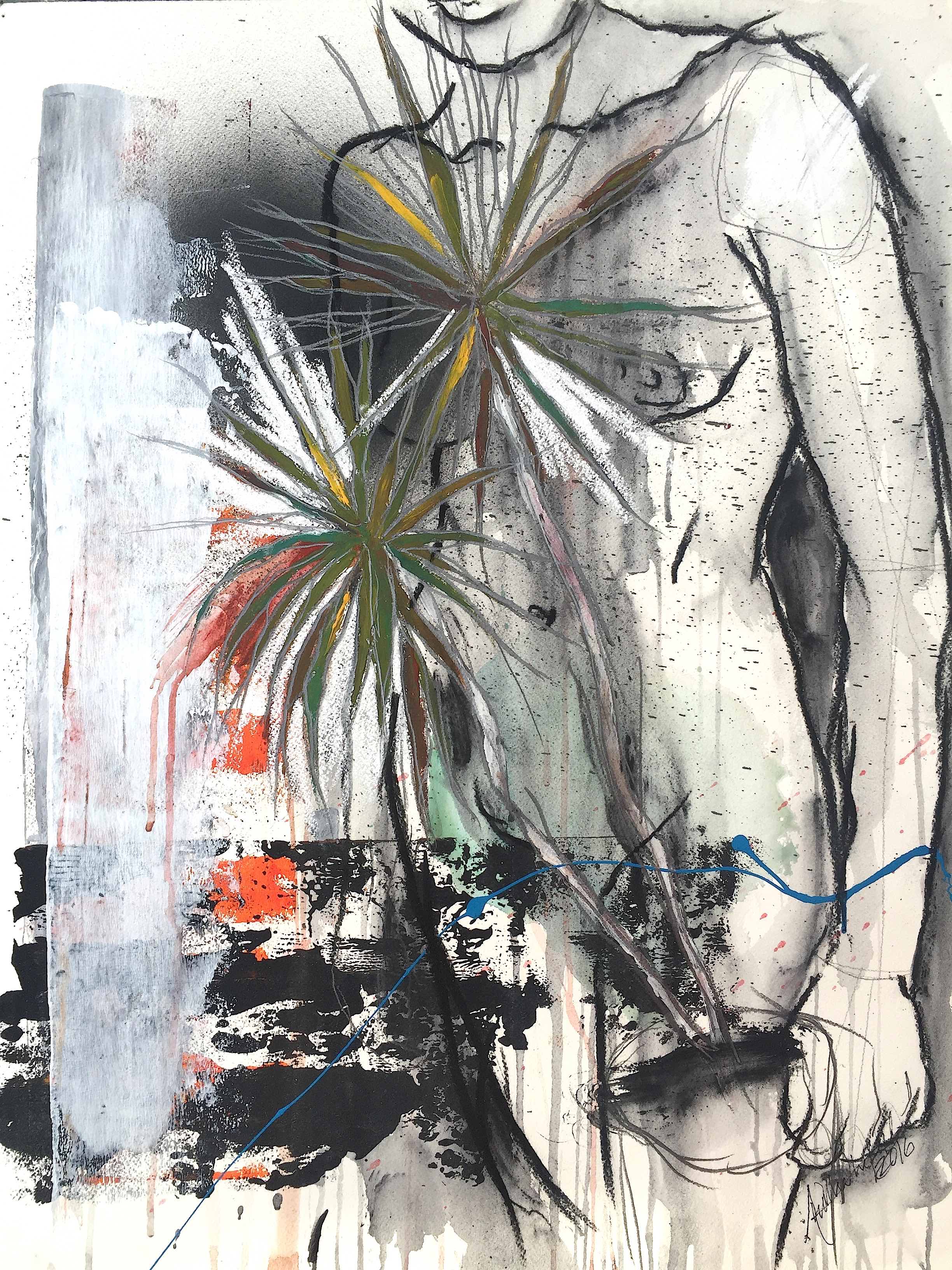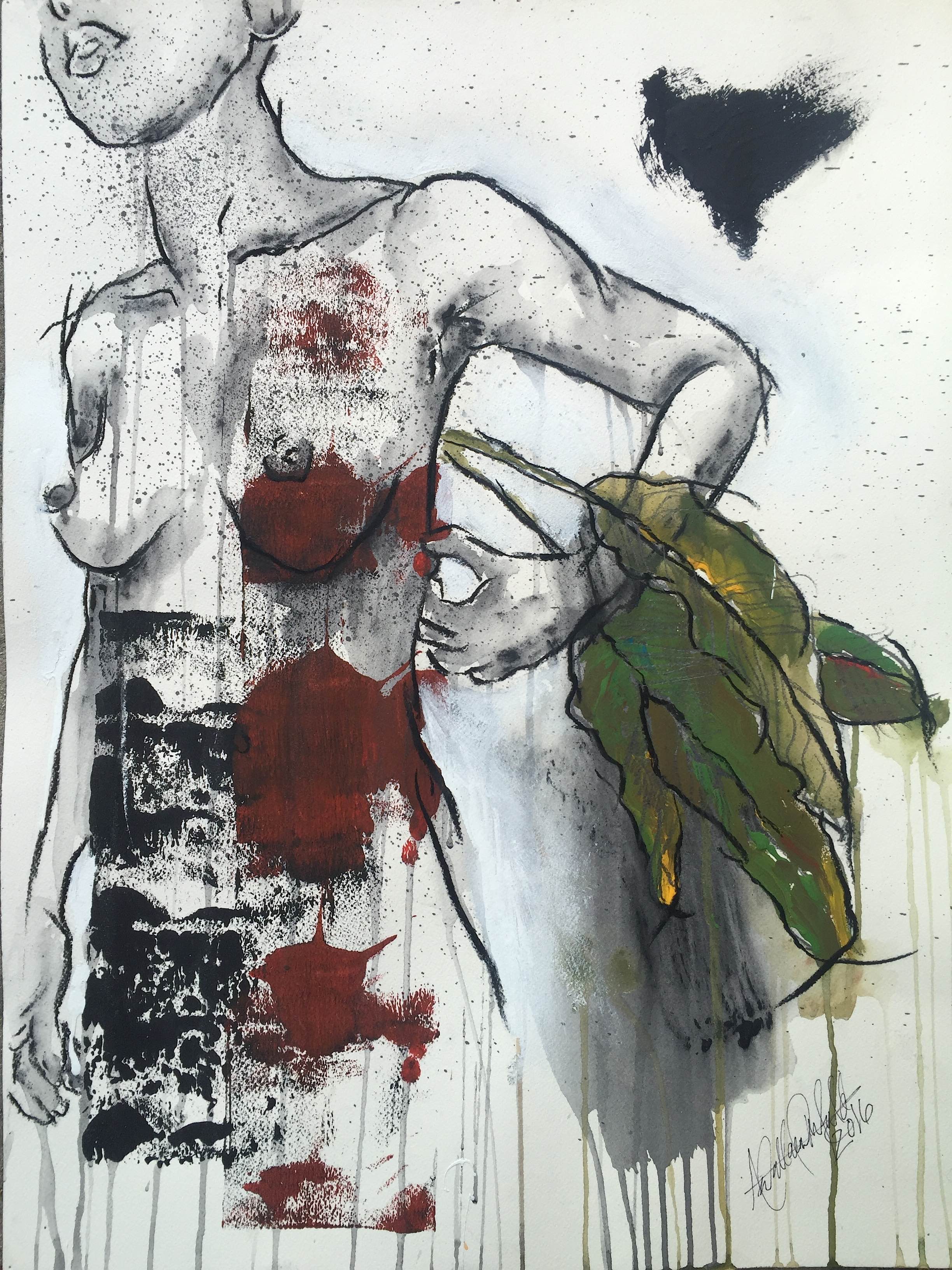Artist In The Spotlight : Angelika Wallace-Whitfield
“It is such an exciting time to be an artist in the Bahamas, and the wider Caribbean region. The art scene is completely malleable and we have reached this pluralist space in which we are essentially reclaiming and writing the narrative and definition of ‘Caribbean art’ or more specifically, ‘Bahamian art’.”
Welcome to Cacique’s Artist In The Spotlight series - a journey into a thriving Bahamian art scene and a look at some of the most celebrated artists, as well as the movers and shakers garnering a name for themselves in The Bahamas and around the world. In the first of the series, we are thrilled to introduce Angelika Wallace-Whitfield, a painter and self-described feminist as well as former curator at the D’Aguilar Art Foundation and The National Art Gallery of The Bahamas who enjoys a double life as an artist and student, flip-flopping between her island home and the UK.
Cacique. How would you describe your work / technique?
A. The first gesture, instinctive & simple is what interests me more than rendering an intricate detail. I take on realistic subjects and attempt to translate them into something instinctive and fluid. My work is an attempt to turn inwards, to navigate and retrieve a sense of identity. I like to interrogate and expose the gap between the intention and effect of our self-presentation, in hopes of authenticating identity. By leaving pieces “undone” the viewer is able to finalize any definitive identity, while exposing and confronting the ways in which outsiders contribute to these constructions.
C. Describe yourself in 5 words.
A. Adaptable, ever-learning, free spirit, open-minded. The compound words are cheating, but we can call it creative. Haha!
C. Would you classify yourself as a feminist?
A. Yes, of course. I think anyone with an unbiased awareness of social and economical facts should stand on the side of feminism. I’d classify myself as an intersectional feminist. To be a feminist is to recognize that women are not granted the same rights, social capital and freedom as men. That’s sort of undeniable. Intersectional feminism is a further recognition of the sum of different degrees of sexism, racism and other realms of combined discrimination that women experience. I think the term feminism is connoted with a radical oppression of men. It’s merely a movement seeking gender equality, equality of opportunity, justice, etc.
C. Fish n chips or peas n rice?
A. Oh, Fish and chips, for sure!
C. Sky Juice at regatta or a pint in the local pub?
A. Kalik Light Platinum, at regatta! So I’m somewhere in between those two choices.
C. What’s with all the animals in your paintings?
A. I try to compare the instincts and tendencies of humans and animals; it’s a sort of translation of mannerisms to allow for a contextualization of aspects of the human experience and human interaction. I don’t really know why I do that to be honest. It’s a natural inclination.
C. Who are your major influencers & mentors?
A. Well, Sue Bennett-Williams has been my only art teacher, ever. It is definitely because of her that I am pursuing a career in this field. I don’t think I can pin point a particular person as an influencers. My surroundings usually influence my art more than anything; I respond to my environment. My time working and creating at Popop Studios is always the most inspiring.
C. What are you working on currently?
A. I’m not working on any visual works beyond daily sketchbook play. I’m in my final semester at university so I’ve thrown myself into my schoolwork so that I can finish strong. Last semester I had my first few commissioned works in the UK, which was incredibly exciting, but I’ve put the paint brush down for this final 10 weeks. I’m not actually studying studio art. I study the History and Philosophy of Art, so my time is spent researching and articulating words rather than visuals.
C. How much does your native Bahamas inspire your work? What about the UK?
A. I’m definitely more inspired in The Bahamas. Its actually my sole inspiration this far. I think how the UK supplements the inspiration is that it places me in a completely different demographic and surrounding, with different modes of human interaction. This allows me to return to the Bahamas with new eyes. It’s a sort of enlightening experience. I come home and see things differently, and see things I’ve never noticed before.
C. Who would you say is or should be the most celebrated Bahamian artist?
A: Oh dear, this is a question I don’t (and possibly shouldn’t) have an answer to. Haha. I think the recent National Exhibition at the NAGB illustrated the top tier of artists. I was so happy to see so many socially and politically relevant and necessary works.
C. Do you own any Bahamian art? If you could own one piece, which would it be?
A. I do! I’ve traded work with a few of my peers and mentors. I won a few portraits of myself done by fellow artists. We’re always seeking subjects! Additionally, I try to support other young artists’ shows whenever I can. I own a John Cox, a Jodi Minnis, a Kendal Hanna, an Nowé Harris-Smith, a Navarro Newton. I would love to continue to collect works from my fellow Bahamian artists. I love to see the variation in everyone’s interpretation on similar subjects.
C. How would you describe the current Bahamian art scene? What are the biggest challenges and benefits?
A. It is such an exciting time to be an artist in the Bahamas, and the wider Caribbean region and diaspora. That is something I’ve been recognizing and voicing a lot recently. The art scene is completely malleable and we have reached this pluralist space in which we are essentially reclaiming and writing the narrative and definition of the ambiguous idea of ‘Caribbean art’ or more specifically, ‘Bahamian art’. I think the biggest challenge, at least personally, is taking the plunge of creating a career out of your art, like truly pursuing your art without inhibition and owning it as a respectable career.
C. What do you miss most about The Bahamas when you are in the UK and what do you miss most about the UK when you are in The Bahamas?
A. Oh man, I miss everything about the Bahamas… its really weird. You get a newfound appreciation for things that may otherwise frustrate you. I guess mostly, I miss the sun and being in the constant company of fellow artists. They’re family. When I’m home I definitely miss being in an academic environment, the conversations that push my level of thinking and analysis.
